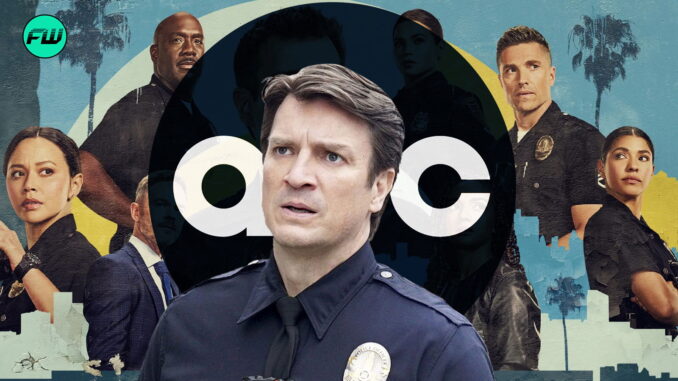
The Unseen Threads: Why a Weak Finale Isn't the End of the World (According to the ABC Boss)
The collective groan from living rooms across America was almost palpable. Season 7 of The Rookie, a show once lauded for its charming ensemble and clever procedural twists, had limped across the finish line with a finale that felt less like a thrilling climax and more like a deflated balloon. Plot threads frayed, character arcs felt forced, and the stakes, once genuinely compelling, seemed to evaporate into a saccharine, too-neat resolution. Social media, the modern-day town square, buzzed with disquieting murmurs: "Is this it?" "Are they done?" "Please, let this be the end."
Then came the announcement, delivered with the unflappable confidence of a network executive who lives by metrics as much as by art: The Rookie would return for Season 8. For many fans, it was akin to discovering your beloved, sputtering car wasn't going to the scrapyard, but merely to the mechanic for another costly, perhaps futile, repair. But for the ABC Boss, whose name might as well be "Profit & Loss," the decision wasn't just logical; it was almost inevitable. The explanation for such a choice, despite the creative doldrums, is a masterclass in television economics, brand loyalty, and the audacious hope for redemption.
From a purely economic standpoint, a television show, especially one with The Rookie's established run, is less a delicate artistic endeavor and more a robust, revenue-generating cruise liner. Turning such a ship around, let alone scuttling it, is an enormously costly and complicated affair. Think of the existing infrastructure: the standing sets, the long-term contracts for its beloved lead, Nathan Fillion, and the rest of the ensemble, the pre-established production teams, the marketing machinery already well-oiled. To cancel it would mean absorbing significant cancellation fees, writing off millions in sunk costs, and then investing even more millions in developing and launching an entirely new series – a gamble that might or might not find an audience. The Rookie, even in its weaker moments, is a known quantity. It delivers consistent, if not always stellar, viewership, translating directly into advertising dollars and predictable ratings for its time slot. For the network, this reliable revenue stream often trumps the immediate sting of creative missteps.
Beyond the raw numbers, there’s the undeniable power of fan loyalty and brand equity. Seven seasons build a formidable bond. Viewers aren't just tuning in for a single episode; they're returning to a comfort blanket, a familiar world populated by characters they've watched grow, stumble, and triumph. Even if a finale disappoints, the accumulated goodwill of hundreds of hours of entertainment isn't instantly eroded. This isn't just about passive viewing; it's about a habitual, almost familial connection. The ABC Boss understands that this built-in audience is a precious commodity. They might grumble, they might even take a break, but a significant portion will return out of habit, out of curiosity, or out of a lingering hope that the magic can be rekindled. The Rookie isn't just a show; it's a piece of their weekly routine, a brand that resonates far beyond prime time, with international syndication deals and streaming rights that continue to bring in substantial income. You don't abandon a successful brand because of one slightly burnt batch.
Then, there's the most optimistic, perhaps even audacious, part of the ABC Boss's calculus: the belief in creative recalibration. A weak finale doesn't mean the well is dry; it might simply mean the faucet needs tightening or a new pipe needs laying. The network's decision is often accompanied by candid internal assessments. They hear the fan complaints, they see the critical reviews, and they analyze the viewership dips. A renewal, in this context, can be a direct directive: "You've got another season, but make it count." It’s an opportunity for the showrunners to reflect, to identify where they lost their way, and to course-correct. A new writing team, a shift in narrative focus, a re-emphasis on core character dynamics – these are all levers that can be pulled to breathe new life into a series that might have simply drifted into complacency. The Boss sees not a dying show, but a potentially rejuvenated one, armed with the lessons learned from past mistakes.
Finally, a network operates as a delicate ecosystem. The Rookie isn't an island; it's a crucial cog in the broader programming wheel. It serves as a reliable lead-in for other shows, helps anchor a specific night, and fulfills a necessary slot in the weekly schedule. Its established presence means less churn in the overall programming slate, which in turn means more stability for advertisers and a clearer identity for the network. Canceling it would create a void, not just in terms of content, but in the intricate dance of scheduling and promotion.
So, when the ABC Boss explains why The Rookie Season 8 is not the end, despite a weak Season 7 finale, they are not speaking merely as an arbiter of artistic merit. They are speaking as a strategist, a pragmatist, and a custodian of a multi-million-dollar enterprise. They see the enduring financial value, the tenacious loyalty of a built-in audience, the potential for creative redemption, and the vital role the show plays within the larger network tapestry. For the fans, the hope is that this calculated business decision will, by some fortunate confluence, also lead to a renewed artistic vitality. The ball is now firmly in the creative team's court. The cruise liner is still afloat, its engines sputtering perhaps, but still steaming towards the horizon, driven by the unseen threads of commerce and an enduring, if slightly bruised, legacy.